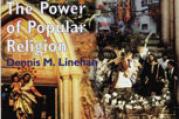






Metaphor or Myth
One important conclusion in Creationism and the Catechism, by Joan Acker, H.M. (12/16)that God creates suffering and death (evil?)is empirical tunnel vision. We need to look outside the tunnel to see metaphysical reality.
Focusing our vision of sin on chronological events turns sin into a material action rather than the relationship that it is. The discovery of death in the universe chronologically prior to the existence of humanity is not the intractable problem that Sister Acker’s writing suggests. The real problem is the attempt to judge the relationships of human spirits, such as sin and innocence, within the restrictions that empiricism imposes on human understanding. A more appropriate forum would be a metaphorical courtroom where we can examine a broader range of evidence without being hampered by the prejudice that intangible equals unreal.
For example, there is the common human perception, which cuts across cultures centuries before the Hebrew Scriptures, that two forces are at work in the universe: a good, creative one, and a bad, destructive one, which leads humans into evil. Complementary to that is the common human experience of being born into the relative paradise of innocence, then in two or three years beginning to succumb to the apple of rebellion, and in a few more years beginning to recognize our nakedness. After that we spend a good portion of our lives attempting to convince ourselves and others, especially the One out there, that the devil made me do it.
Are these perceptions and experiences myth, or are we seeing reality through a glass, darkly? Wisps of perfume, or simply nostalgia? I think we make more complete use of our human powers when we recognize that these perceptions and experiences have probative value and make a good circumstantial case. We should look at fallen angels and Adam and Eve as metaphors for reality, not myths. Theologians would do us all a service by working to dispel the notion that God creates suffering and death, an idea that itself fits more neatly into the category of myth.
James Crafton



